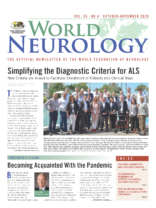By Dr. Abdul Malik- MD
The World Federation of Neurology (WFN) promotes brain health through its education, skills development, and advocacy activities. Since 2014, the WFN has organized dedicated awareness drives in all the WFN member countries around the globe.
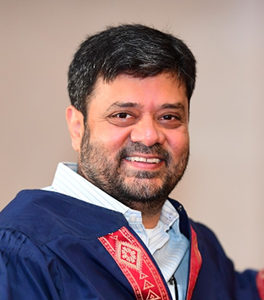
Abdul Malik
The WFN, in collaboration with the International Parkinson’s and Movement Disorder Society, declared the sixth World Brain Day this year, dedicated to the awareness for Parkinson’s disease, which is a neurodegenerative brain disease that affects the mind, movement, and almost all aspects of brain function.
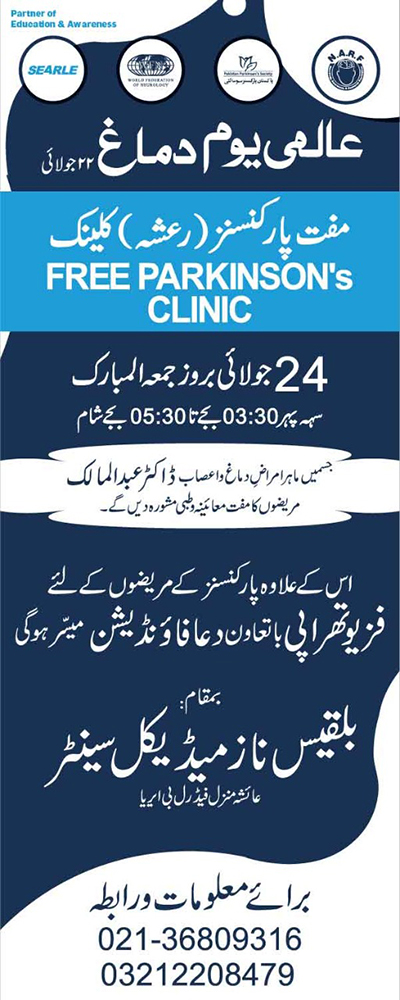
We in Pakistan, along with numerous other global organizations, joined again this year with this campaign to support the WFN in advocating for improved patient care, education, and additional research for those living with Parkinson’s disease and their caregivers.
The Neurology Awareness and Research Foundation (NARF) organized countrywide activities to mark the sixth World Brain Day, with the theme of moving together to end Parkinson’s disease. Parkinson’s disease affects people of all ages, including one in 100 people over the age of 60. The prevalence of this disease is on the rise, making our actions today vital to improving the lives of those who have been and will be diagnosed, particularly during this global health crisis.
Keeping in view the COVID-19 pandemic, our organized activities in Pakistan (online through Zoom and Facebook) became regional and even global activities as our participants were just not from Pakistan; they were from India, Bangladesh, the UAE, the U.S., the U.K., Canada, and different other parts of the Europe.
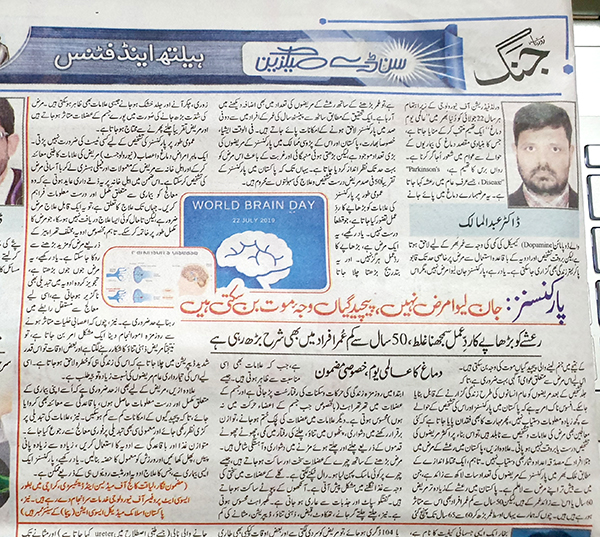
These awareness activities were more focused on social media like Twitter, Facebook, and WhatsApp. We also organized patient welfare activities by organizing two free Parkinson’s clinics on July 19 and July 24, adopting all standard operating procedures regarding the patients’ and medical staff’s safety. The services provided during these free clinics included not only free consultation from a neurologist, but also free services from a physiotherapist, speech therapist, and neuropsychologist.
We prepared awareness flyers in the Urdu language about Parkinson’s for the general public; this material was in simple, pictorial form about the signs, symptoms, treatment, and rehabilitative awareness of Parkinson’s disease and was distributed in 500 clinics across the country. Month-long Facebook as well as Twitter activities were executed with key messages given by the WFN and translated into the local language. World Brain Day posters were placed in almost all of the major institutes and departments of neurology in Pakistan.
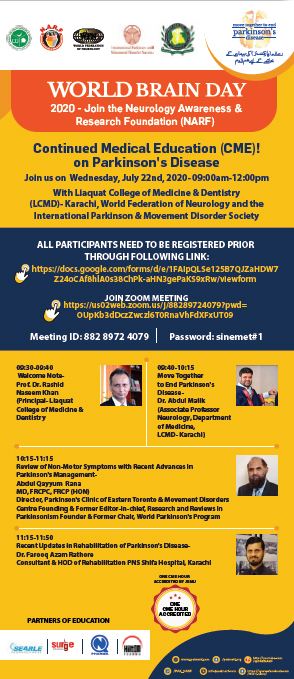
We prepared a NARF Exercise Diary in the Urdu language with illustrative pictures to inform Parkinson’s patients about the importance of exercise as well as to motivate them to do these exercises at home. The diary comprises exercises involving all four limbs and trunk, including standing and sitting postures with facial exercises; speech exercise and speech therapy are also briefly described. This diary was launched in collaboration with the Pakistan Parkinson’s Society and was distributed among all neurology centers throughout Pakistan.
On July 14, NARF organized a Facebook Live public awareness session on Parkinson’s disease in the context of WBD 2020. This session was held at Aga Khan University in Karachi and was organized with the leading media group of Pakistan, Duniya. The complete proceedings of this session were published in the Daily Duniya newspaper. In this session, we had the top neurologists of the country, Prof. M. Wasay, Prof. Naila Shahbaz, and Dr. Bashir Soomro, as the participants. Besides these we had the director of the Institute of Psychology, Prof. Dr. Uzma Ali; an assistant professor and physiatrist from the Institute of Physical Medicine and Rehabilitation of DUHS, Dr. Syed Saeed Qaiser; and the editor of the Daily Duniya Karachi, Ahmed Hasan, as the panelists. Dr. Abdul Malik and Mustafa Habib Siddiqui were the moderators of this extensive awareness session, which was seen live in almost two dozen countries.
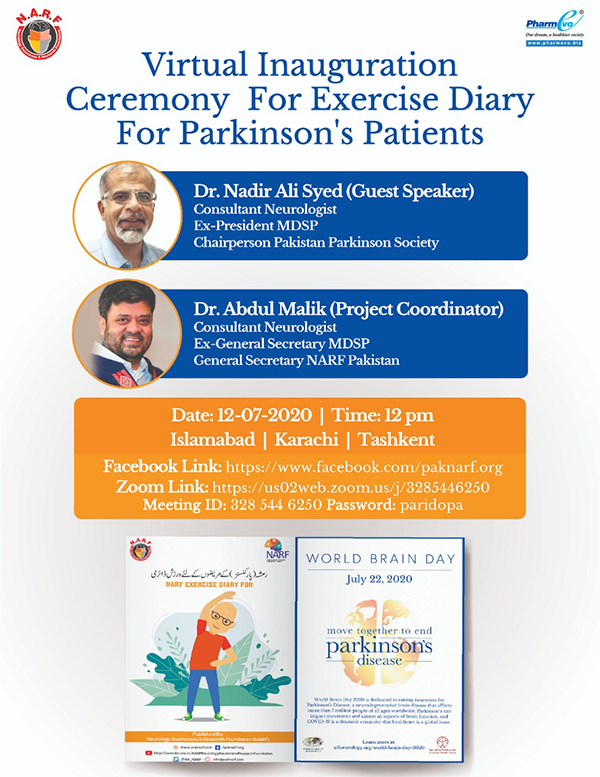
On July 22, NARF organized a Zoom webinar which was CME-accredited by the Jinnah Sindh Medical University. Principal Liaquat College of Medicine and Dentistry Prof. Dr. Rashid Naseem Khan gave opening remarks. The educational talk in context of the theme of World Brain Day was given by Dr. Abdul Malik, the rehabilitative talk was given by Dr. Farooq Rathore, and the keynote speech on the review of non-motor symptoms with recent advances in Parkinson’s management was given from Canada by the Dr. Abdul Qayyum Rana. A large number of undergraduate students, postgraduate trainees, and faculty members attended this interactive academic session.
The awareness activities were not only covered in national and local newspapers but also in the electronic media. Almost a half dozen leading newspapers and magazines published articles on Parkinson’s disease.
In short, keeping in view the COVID-19 pandemic, a comprehensive advocacy campaign for Parkinson’s disease awareness was executed on the occasion of this year’s World Brain Day 2020 from Pakistan as a member of the WFN. •
Dr. Abdul Malik- MD, MHD (Denmark), DCN, PGDN,MBA, General Secretary of NARF Pakistan, Associate Professor of Neurology, Liaquat College of Medicine & Dentistry, Karachi, Pakistan
